Beanmachine Blog
Discover articles, fresh insights, and more.
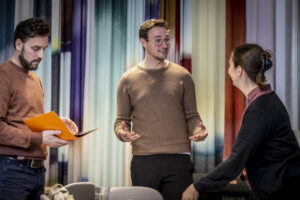
Pioneering in leadership: the vision of Bean Pieter Lauwers for Young Potentials
Leadership transcends mere titles or positions; it embodies the ability to foster an environment conducive to growth and development. In an engaging dialogue with Pieter

Playing to win: how strategic games shape high-performing teams at Beanmachine
Explore how games like ‘Challenging Assumptions’ and ‘Webmaster’ transform teams at Beanmachine, fostering psychological safety and innovative problem-solving. Learn how play and performance intertwine to redefine team dynamics in ‘Playing to Win: How Strategic Games Shape High-Performing Teams at Beanmachine’.

Trust and transformation: how BOB-days elevate our team at Beanmachine
Integrating trust-building practices from high-performing teams Harvard Business Review recently published an article titled ‘How High-Performing Teams Build Trust’ (January 2024). The article highlights the
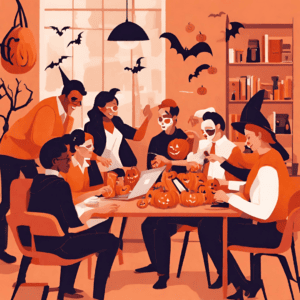
The power of Halloween in Leadership and Team Development
Unmasking potential: beyond candies and costumes Halloween, often associated with spooky tales, trick-or-treats, and playful costumes, isn’t just about candy and jack-o’-lanterns. The spirit of
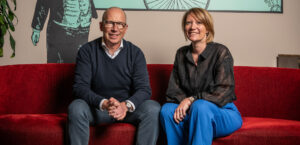
We have a match!
Beanmachine, Effectis, and GreenPark: A partnership that benefits you! Boosting HR expertise for better service.

Unlocking the Potential of Middle Managers: A Must-Read for Belgian Companies
As Belgian businesses navigate the changing economic landscape, it’s essential to reevaluate our approach to middle management. Recent findings from a Harvard Business Review article shed light

The Powerful Secret of Successful Team Building at Doctors Without Borders
Discover the secret behind successful team building at Doctors Without Borders, where relationships and resilience form the backbone of their success.
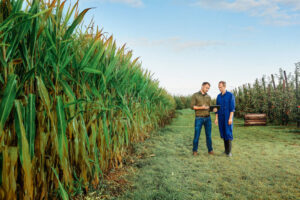
The passionate CHRO: Karin Van Roy’s unconventional path in Human Resources
Explore Karin Van Roy’s innovative approach to HR as Arvesta’s CHRO, cultivating open communication, employee satisfaction, and transformative leadership.
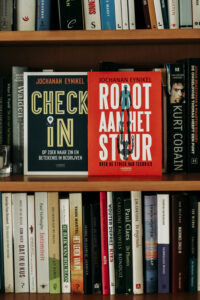
A glimpse into the Heart of Meaningful Work: a Conversation with Jochanan Eynikel
Join us on an enlightening journey with Jochanan Eynikel, as he bridges the gap between philosophy and business, promoting meaningful work and authenticity.

Bartel Van Riet About Nature as a Catalyst for Self-Development
Bartel opens up about his philosophy, highlighting the profound impact of nature on personal well-being and self-development. He stresses the importance of consciously making time to interact with nature, whether you live in the city or countryside, and finding balance in our technology-driven lives. We also talk about the partnership between Beanmachine and Heartcore, which promises to offer unique and adventurous experiences inspired by nature.

Giving and receiving feedback in hybrid workspaces
In today’s rapidly evolving work landscape, hybrid workspaces have become the new norm, blending face-to-face interactions with digital communication methods. While this hybrid model offers flexibility and convenience, it also presents unique challenges, particularly when it comes to fostering a feedback culture.

5 trends in organizational culture in the ‘new normal’
Organizational culture has always been an important aspect of any company, but it has become even more crucial in recent times. The COVID-19 pandemic has

6 Trends in the hybrid way of working
Up until a few years ago, we mostly used ‘hybrid’ when discussing cars. Now, after a period of working remotely, we’re experiencing a shift to

Business, belonging & balance as the new b’s for adaptive organizations
Whether you call it the New, Hybrid or Future Way of Working, it’s clear that there’s no ‘going back to normal’ from before COVID-19 hit.
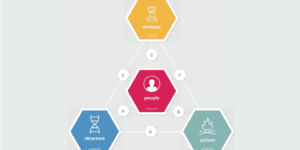
Back to school: a 3-day course on organizational design for the franklin university
At Beanmachine we love to share our knowledge with clients, with each other, and also with the new generation of business leaders. Recently, Geert and I had

How to measure, analyze and develop your adaptability
Parents teaching their own kids, students taking their classes via Zoom, restaurants switching to take-away almost overnight, retail stores selling their products via Instagram, …

Psychological safety is one thing, bravery talks another
That morning at the coffee machine I ran into fellow Beans Serge, Chris, and François. Apart from our role as business consultants we also share

Fewer reporting lines, more storylines
As well-meaning as they are in implementing such performance-based reports, too often these systems function entirely to give people even more incentive to narrow the

“Every social and global issue is a business opportunity in disguise”
Not my quote. It was Peter Drucker’s statement, a long time ago. So business sustainability is not new. However, for decades now most companies only

The power of the pack
Organizations operating as standalone entities? It is my sincere conviction they will cease to exist within a decade. We can no longer ignore the increasingly

System doesn’t allow experiments? Game-over for innovation!
Think you can innovate by appointing an innovation manager? Or by rolling out an innovation process? Forget it. The organizations that tried, have all since
More freshly ground insights in your inbox?
Join our newsletter!